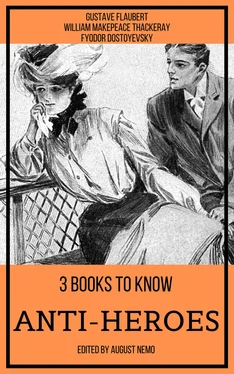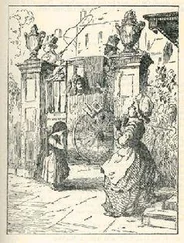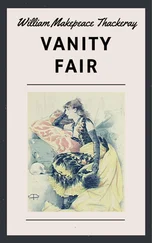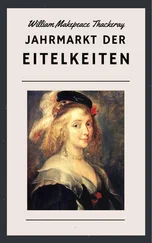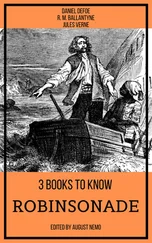She fitted up her new abode with much economy and considerable taste, and never, for all her poverty, abated a jot of the dignity which was her due and which all the neighbourhood awarded to her. How, indeed, could they refuse respect to a lady who had lived in London, frequented the most fashionable society there, and had been presented (as she solemnly declared) at Court? These advantages gave her a right which seems to be pretty unsparingly exercised in Ireland by those natives who have it,—the right of looking down with scorn upon all persons who have not had the opportunity of quitting the mother-country and inhabiting England for a while. Thus, whenever Madam Brady appeared abroad in a new dress, her sister-in-law would say, ‘Poor creature! how can it be expected that she should know anything of the fashion?’ And though pleased to be called the handsome widow, as she was, Mrs. Barry was still better pleased to be called the English widow.
Mrs. Brady, for her part, was not slow to reply: she used to say that the defunct Barry was a bankrupt and a beggar; and as for the fashionable society which he saw, he saw it from my Lord Bagwig’s side-table, whose flatterer and hanger-on he was known to be. Regarding Mrs. Barry, the lady of Castle Brady would make insinuations still more painful. However, why should we allude to these charges, or rake up private scandal of a hundred years old? It was in the reign of George II that the above-named personages lived and quarrelled; good or bad, handsome or ugly, rich or poor, they are all equal now; and do not the Sunday papers and the courts of law supply us every week with more novel and interesting slander?
At any rate, it must be allowed that Mrs. Barry, after her husband’s death and her retirement, lived in such a way as to defy slander. For whereas Bell Brady had been the gayest girl in the whole county of Wexford, with half the bachelors at her feet, and plenty of smiles and encouragement for every one of them, Bell Barry adopted a dignified reserve that almost amounted to pomposity, and was as starch as any Quakeress. Many a man renewed his offers to the widow, who had been smitten by the charms of the spinster; but Mrs. Barry refused all offers of marriage, declaring that she lived now for her son only, and for the memory of her departed saint.
‘Saint forsooth!’ said ill-natured Mrs. Brady.
‘Harry Barry was as big a sinner as ever was known; and ‘tis notorious that he and Bell hated each other. If she won’t marry now, depend on it, the artful woman has a husband in her eye for all that, and only waits until Lord Bagwig is a widower.’
And suppose she did, what then? Was not the widow of a Barry fit to marry with any lord of England? and was it not always said that a woman was to restore the fortunes of the Barry family? If my mother fancied that SHE was to be that woman, I think it was a perfectly justifiable notion on her part; for the Earl (my godfather) was always most attentive to her: I never knew how deeply this notion of advancing my interests in the world had taken possession of mamma’s mind, until his Lordship’s marriage in the year ‘57 with Miss Goldmore, the Indian nabob’s rich daughter.
Meanwhile we continued to reside at Barryville, and, considering the smallness of our income, kept up a wonderful state. Of the half-dozen families that formed the congregation at Brady’s Town, there was not a single person whose appearance was so respectable as that of the widow, who, though she always dressed in mourning, in memory of her deceased husband, took care that her garments should be made so as to set off her handsome person to the greatest advantage; and, indeed, I think, spent six hours out of every day in the week in cutting, trimming, and altering them to the fashion. She had the largest of hoops and the handsomest of furbelows, and once a month (under my Lord Bagwig’s cover) would come a letter from London containing the newest accounts of the fashions there. Her complexion was so brilliant that she had no call to use rouge, as was the mode in those days. No, she left red and white, she said (and hence the reader may imagine how the two ladies hated each other) to Madam Brady, whose yellow complexion no plaster could alter. In a word, she was so accomplished a beauty, that all the women in the country took pattern by her, and the young fellows from ten miles round would ride over to Castle Brady church to have the sight of her.
But if (like every other woman that ever I saw or read of) she was proud of her beauty, to do her justice she was still more proud of her son, and has said a thousand times to me that I was the handsomest young fellow in the world. This is a matter of taste. A man of sixty may, however, say what he was at fourteen without much vanity, and I must say I think there was some cause for my mother’s opinion. The good soul’s pleasure was to dress me; and on Sundays and holidays I turned out in a velvet coat with a silver-hilted sword by my side and a gold garter at my knee, as fine as any lord in the land. My mother worked me several most splendid waistcoats, and I had plenty of lace for my ruffles, and a fresh riband to my hair, and as we walked to church on Sundays, even envious Mrs. Brady was found to allow that there was not a prettier pair in the kingdom.
Of course, too, the lady of Castle Brady used to sneer, because on these occasions a certain Tim, who used to be called my valet, followed me and my mother to church, carrying a huge prayer-book and a cane, and dressed in the livery of one of our own fine footmen from Clarges Street, which, as Tim was a bandy-shanked little fellow, did not exactly become him. But, though poor, we were gentlefolks, and not to be sneered out of these becoming appendages to our rank; and so would march up the aisle to our pew with as much state and gravity as the Lord Lieutenant’s lady and son might do. When there, my mother would give the responses and amens in a loud dignified voice that was delightful to hear, and, besides, had a fine loud voice for singing, which art she had perfected in London under a fashionable teacher; and she would exercise her talent in such a way that you would hardly hear any other voice of the little congregation which chose to join in the psalm. In fact, my mother had great gifts in every way, and believed herself to be one of the most beautiful, accomplished, and meritorious persons in the world. Often and often has she talked to me and the neighbours regarding her own humility and piety, pointing them out in such a way that I would defy the most obstinate to disbelieve her.
When we left Castle Brady we came to occupy a house in Brady’s town, which mamma christened Barryville. I confess it was but a small place, but, indeed, we made the most of it. I have mentioned the family pedigree which hung up in the drawingroom, which mamma called the yellow saloon, and my bedroom was called the pink bedroom, and hers the orange tawny apartment (how well I remember them all!); and at dinner-time Tim regularly rang a great bell, and we each had a silver tankard to drink from, and mother boasted with justice that I had as good a bottle of claret by my side as any squire of the land. So indeed I had, but I was not, of course, allowed at my tender years to drink any of the wine; which thus attained a considerable age, even in the decanter.
Uncle Brady (in spite of the family quarrel) found out the above fact one day by calling at Barryville at dinner-time, and unluckily tasting the liquor. You should have seen how he sputtered and made faces! But the honest gentleman was not particular about his wine, or the company in which he drank it. He would get drunk, indeed, with the parson or the priest indifferently; with the latter, much to my mother’s indignation, for, as a true blue Nassauite, she heartily despised all those of the old faith, and would scarcely sit down in the room with a benighted Papist. But the squire had no such scruples; he was, indeed, one of the easiest, idlest, and best-natured fellows that ever lived, and many an hour would he pass with the lonely widow when he was tired of Madam Brady at home. He liked me, he said, as much as one of his own sons, and at length, after the widow had held out for a couple of years, she agreed to allow me to return to the castle; though, for herself, she resolutely kept the oath which she had made with regard to her sister-in-law.
Читать дальше
